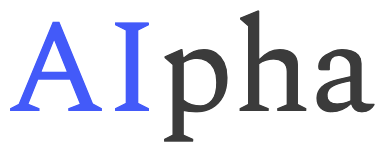Summary
Brainstorm Cell Therapeutics is a clinical-stage biotech developing NurOwn® for ALS. While recent FDA clearance is positive, the company faces critical funding challenges and binary clinical risk. Suitable only for high-risk investors comfortable with biotech volatility.
Bull Case
Successful Phase 3b results could lead to FDA approval, partnerships, and access to the multi-billion dollar neurodegenerative disease market. The $13.12 analyst target suggests 894% upside potential from current $1.32 share price if milestones are achieved.
Bear Case
Imminent cash crunch (only $187k cash as of Q4 2024) risks trial delays or bankruptcy. Negative equity and reliance on dilutive financing could erase shareholder value. High failure rate of late-stage neurology trials adds risk.
Recent News
- FDA cleared Phase 3b trial of NurOwn® for ALS treatment under Special Protocol Assessment (SPA), enabling patient enrollment (PR Newswire, 2025-05-19).
- Delays in Phase 3b trial initiation due to complex IND submission processes, per Q4 2024 earnings call (Yahoo Finance).
- Company actively seeking non-dilutive funding to support trial launch (PR Newswire).
Financial Analysis
- Consistent zero revenue since at least Q1 2023 (latest data: Q4 2024).
- Operating losses improved sequentially from -$4.8M (Q4 2023) to -$3.19M (Q4 2024).
- Cash reserves plummeted 85.6% YoY: $1.3M (Q4 2023) -> $0.187M (Q4 2024).
- Negative book value per share worsened from -$1.20 (2023) to -$1.46 (2024).
- Negative ROE of 38.3% (Q4 2024) indicates capital inefficiency.
- Current ratio of 0.04 (Q4 2024) signals severe liquidity constraints.
- Price/Book ratio of -1.04 reflects market skepticism about asset value.
- Negative operating cash flow (-$9.09M for FY2024) shows funding dependency.
The company’s survival depends on successful trial outcomes and additional funding. While Phase 3b clearance provides regulatory pathway, macroeconomic headwinds (rising rates, trade tensions) could impact biotech funding availability. The healthcare sector’s defensive nature may partially offset broader market volatility.
Screener Ratings
Compare over 5500 companies with our screener ratings at AIpha.io.
Overall: 4
High-risk speculative play with binary outcome dependent on Phase 3b results and financing.
Value: 2
Negative book value and lack of revenue make traditional valuation metrics inapplicable. Potential upside exists but depends entirely on clinical success.
Growth: 7
Phase 3b trial offers clear catalyst path, but growth contingent on trial success and funding.
Dividend: 1
No dividends: Company is pre-revenue and loss-making.
Defensive: 3
Biotech stocks are cyclical, though ALS treatment demand is relatively inelastic.
Moat: 4
Orphan drug status provides temporary protection, but limited IP and autologous process limit scalability.
S.W.O.T. Analysis
Strengths:
- Proprietary cell therapy platform
- FDA-cleared Phase 3b trial design
Weaknesses:
- Negative equity (-$7.76M as of Q4 2024)
- Dependence on dilutive financing
Opportunities:
- $2.5B+ ALS treatment market
- Potential partnership with big pharma
Threats:
- Cash runway <6 months at current burn rate
- Clinical trial failure risk
Industry Overview
Threat of New Competitors: Moderate-High: Biotech requires specialized expertise but low barriers for well-funded competitors.
Competition Among Existing Firms: High: Multiple firms targeting ALS treatment (e.g., Amylyx, Biogen) with advanced pipelines.
Suppliers’ Bargaining Power: Moderate: Reliance on specialized CROs and manufacturing partners.
Buyers’ Bargaining Power: High: Payers (insurers/governments) demand strong clinical data for reimbursement.
Threat of Substitute Products: Moderate: Competing modalities (gene therapy, small molecules) in development.
Competitive Advantage
Cost Advantage: None evident: Negative margins and R&D-intensive model.
Intangible Assets: Potential: Orphan drug designation and patent-protected NurOwn® platform.
Network Effect: None: Autologous therapy limits scalability.
Switching Costs: Low: ALS treatments typically compete on efficacy/safety profile.
Warning: This document has been generated by an advanced customised AI prompted with financial data derived from company filings and other reputable sources. The process is specifically designed to minimise hallucinations, however the output is not 100% reliable. It is essential to check any information in this document before relying on it for financial decisions. You can find the underlying data used here.
Legal Disclaimer
The information contained on this website and associated documents, including all text, data, analyses, opinions, and forward-looking statements, is provided solely for general informational purposes and does not constitute financial, investment, legal, or tax advice. The content has been generated by an artificial intelligence tool using publicly available data and company filings. Although every effort has been made to ensure accuracy, the information is provided “as is” without any warranty—express or implied—of completeness, accuracy, reliability, or suitability for any purpose.
Not Regulated Advice
No FCA Authorization: We are not authorized or regulated by the Financial Conduct Authority (FCA) or any other financial regulatory body to offer investment advice or recommendations. Nothing in this report should be construed as a solicitation, recommendation, or endorsement to buy, sell, or hold any security or financial instrument.
Independent Decision-Making: Investors are strongly encouraged to conduct their own research and consult with a licensed financial advisor or other professional before making any financial decisions. Reliance on the information provided herein is solely at your own risk.
Forward-Looking Statements
This report may contain forward-looking statements, which are based on current expectations, assumptions, and projections that involve risks and uncertainties. Actual results may differ materially from those expressed or implied by these statements. We do not undertake any obligation to update or revise any forward-looking statements in light of new information or future developments.
Limitation of Liability
Under no circumstances shall Aipha.io or its affiliates, employees, or agents be liable for any direct, indirect, incidental, consequential, or other damages arising out of or in connection with the use of, or reliance on, the information contained in this report—even if advised of the possibility of such damages. This includes, without limitation, any loss of profit, revenue, or data.
Use at Your Own Risk
By using this report, you acknowledge that you have read and understood this disclaimer and agree that any reliance on the information provided is at your own risk. [Your Company Name/Aipha.io] expressly disclaims any and all liability for any loss or damage of any kind incurred as a result of any use of this report.
